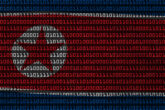April 26, 2021
Getting North Korea Back To The Table
President Joe Biden inherited a greater North Korea challenge than his predecessors. Pyongyang’s nuclear and missile capabilities are significantly more advanced than any American administration imagined since the first nuclear crisis of the 1990s. Past agreements unraveled over politics, transparency, verification, and time. North Korea sees the U.S. democratic electoral system as a strategic weakness it can take advantage of—despite complaining about inconsistent policies—by raising tensions to increase leverage and simply waiting out administrations that will not offer deals to its liking. Changing American administrations, meanwhile, need time to rebuild their North Korea teams, coordinate their inter-agency process, and deal with domestic politics and other urgent foreign policy matters.
North Korea sees the U.S. democratic electoral system as a strategic weakness it can take advantage of
All the while, the regime steadily mass produces missiles and nuclear warheads, and perfects its weapons technology by testing ballistic missiles that can be used in battle, or could even start a war by miscalculation. Pyongyang continues to exploit the gray zone between war and peace with its ballistic missile tests, bellicose rhetoric, cyber attacks, nuclear weapons development, and occasional conciliatory gestures. North Korea’s extreme self-isolation due to the coronavirus pandemic and U-turn in its economic policies to more centralization do not necessarily portend an imminent or looming internal crisis. North Korea has proven resilient in the harshest of economic times before. Its exorbitant earnings from cybercrimes and illicit financial activities have also become a lucrative source of funding for its nuclear weapons development, and it is easy to speculate that these activities could also finance parts of its economy.
Read the full article from the Democracy Journal.
More from CNAS
-
What Will North Korean Cybercrime Look Like in 2022?
North Korean hackers will likely continue to employ more phishing campaigns in the future while tailoring their level of obfuscation based on the target’s sophistication....
By Jason Bartlett
-
Duyeon Kim testifies before European Parliament's Committee on Foreign Affairs
Chairman McAllister, Vice Chairs, DKOR Chairman Mandl, and distinguished Members of the Committee on Foreign Affairs and the European Parliament, thank you for the opportunity...
By Dr. Duyeon Kim
-
China’s New Land Borders Law Is a Nightmare for North Korean Refugees
A combination of high-level pressure from foreign governments and steady support for grassroots refugee resettlement organizations and programs is the most practical way to as...
By Jason Bartlett
-
The Two Koreas’ Recent Arms Displays Are Sending Very Different Messages
North Korea has announced that it successfully tested a new, smaller submarine-launched ballistic missile, or SLBM, on Tuesday. State media claimed the missile—launched from t...
By Dr. Duyeon Kim


